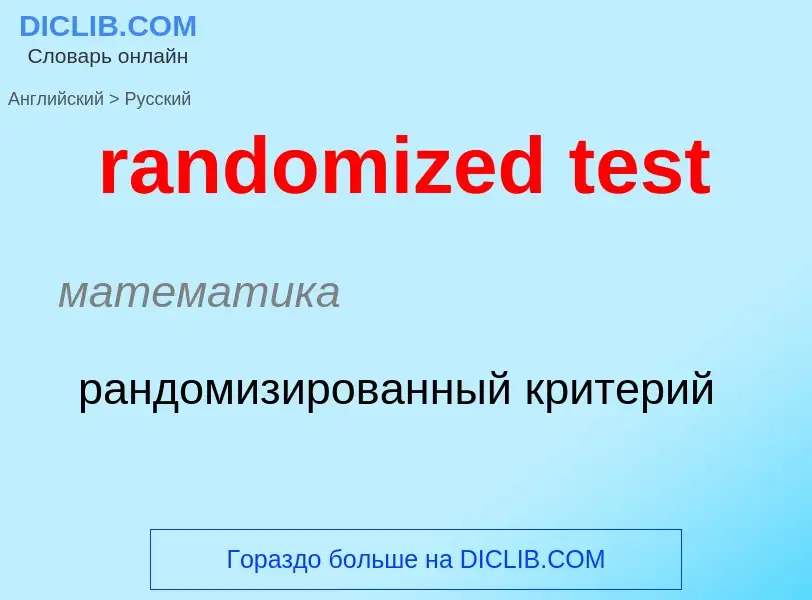Перевод и анализ слов искусственным интеллектом ChatGPT
На этой странице Вы можете получить подробный анализ слова или словосочетания, произведенный с помощью лучшей на сегодняшний день технологии искусственного интеллекта:
- как употребляется слово
- частота употребления
- используется оно чаще в устной или письменной речи
- варианты перевода слова
- примеры употребления (несколько фраз с переводом)
- этимология
randomized test - перевод на русский
математика
рандомизированный критерий
математика
эксперимент с рандомизированным планом
медицина
исследование методом случайной выборки
рандомизированное исследование
медицина
реакция Манту
медицина
непрямая проба Кумбса
медицина
прямая проба Кумбса
медицина
туберкулиновая кожная проба
['testkeis]
общая лексика
задача контрольная
пример контрольный
юриспруденция
дело
имеющее принципиальное значение для разрешения ряда аналогичных дел
дело-прецедент
Определение
Википедия
Randomised response is a research method used in structured survey interview. It was first proposed by S. L. Warner in 1965 and later modified by B. G. Greenberg and coauthors in 1969. It allows respondents to respond to sensitive issues (such as criminal behavior or sexuality) while maintaining confidentiality. Chance decides, unknown to the interviewer, whether the question is to be answered truthfully, or "yes", regardless of the truth.
For example, social scientists have used it to ask people whether they use drugs, whether they have illegally installed telephones, or whether they have evaded paying taxes. Before abortions were legal, social scientists used the method to ask women whether they had had abortions.
The concept is somewhat similar to plausible deniability. Plausible deniability allows the subject to credibly say that they did not make a statement, while the randomized response technique allows the subject to credibly say that they had not been truthful when making a statement.



![The size of [[induration]] is measured 48–72 hours later. Erythema (redness) should not be measured. The size of [[induration]] is measured 48–72 hours later. Erythema (redness) should not be measured.](https://commons.wikimedia.org/wiki/Special:FilePath/Mantoux test.jpg?width=200)

.png?width=200)

